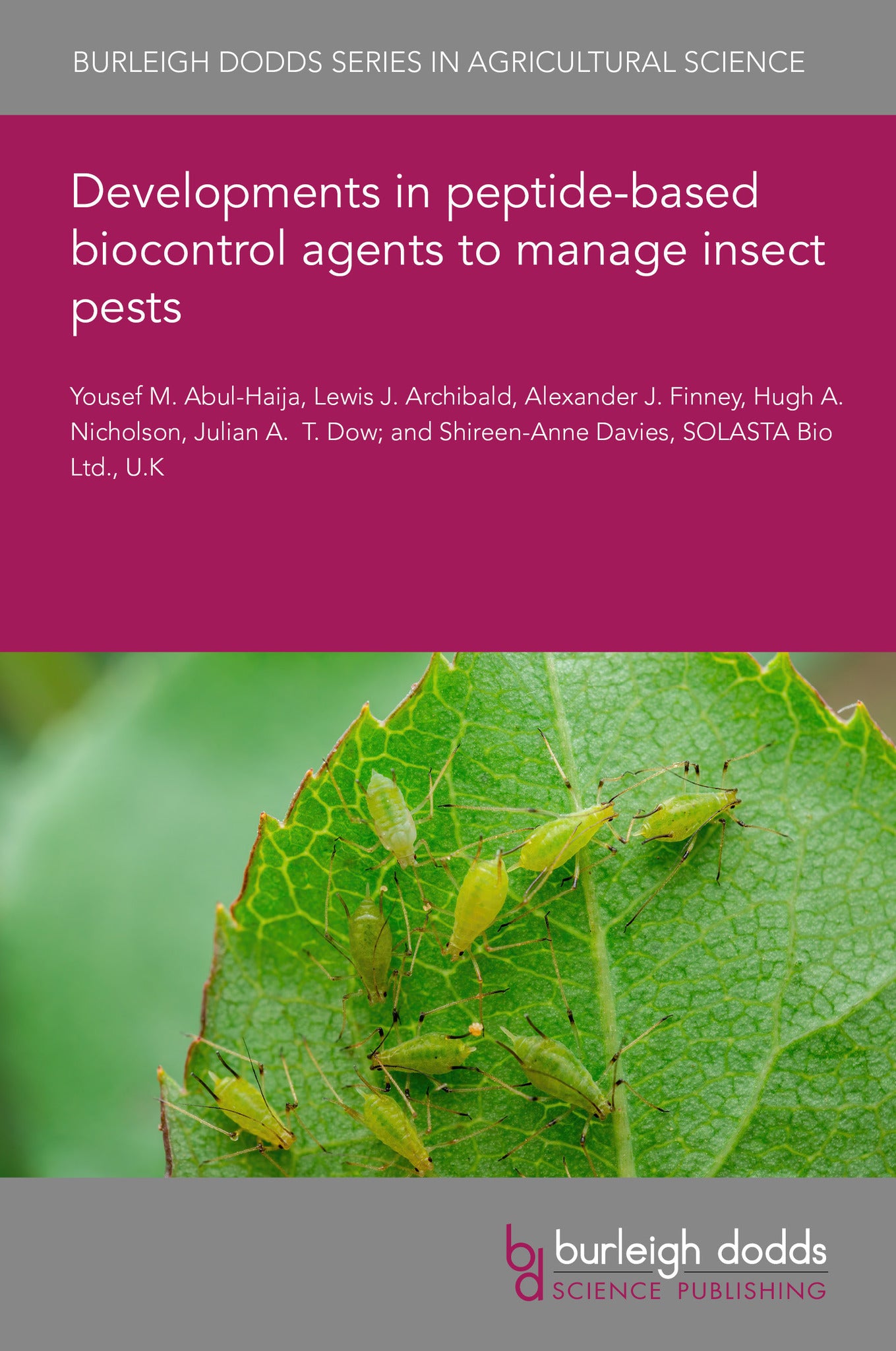We're sorry. An error has occurred
Please cancel or retry.
Developments in peptide-based biocontrol agents to manage insect pests

Some error occured while loading the Quick View. Please close the Quick View and try reloading the page.
Couldn't load pickup availability
- Format:
-
03 April 2025

Chemical insecticides are beset by the twin problems of regulatory pressure and insect resistance. New mode-of-action Plant Protection Products (PPPs) will play a vital role in securing food for the future due to existing and emerging pest and disease pressures and will be directed against a wide range of molecular targets. Insect neuropeptides, which regulate critical life processes, could prove useful for developing alternative strategies for pest management. Recent increases in ‘omics-based data capture has allowed for improved assessment of potential neuropeptide mimetics, while expanding the potential impact with identification of new, specific, pest species targets. Rational design of neuropeptide analogues with improved efficacy, biostability and bioavailability could provide a new generation of eco-friendly, pollinator-safe bioinsecticides. Continued optimization of appropriate adjuvants and formulations for peptides, as well as green improvements to their production on a large scale, would help their adoption as a viable alternative to problematic conventional insecticides.

TECHNOLOGY & ENGINEERING / Pest Control, Pest control / plant diseases, TECHNOLOGY & ENGINEERING / Agriculture / Sustainable Agriculture, TECHNOLOGY & ENGINEERING / Agriculture / Agronomy / Crop Science, Agronomy and crop production, Sustainable agriculture

- 1 Introduction
- 2 Key issues in using neuropeptides as bioinsecticides
- 3 Neuropeptide profiling and families
- 4 Design of peptide bioinsecticides
- 5 Scale up, manufacture and improving sustainability of peptide bioinsecticides
- 6 Conclusion and future trends
- 7 Acknowledgements
- 8 Where to look for further information
- 9 References



